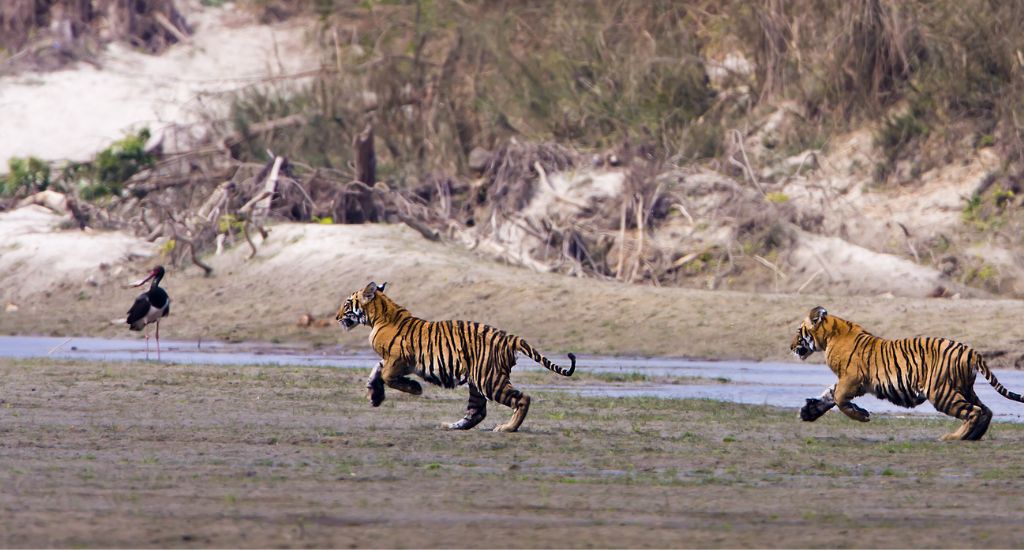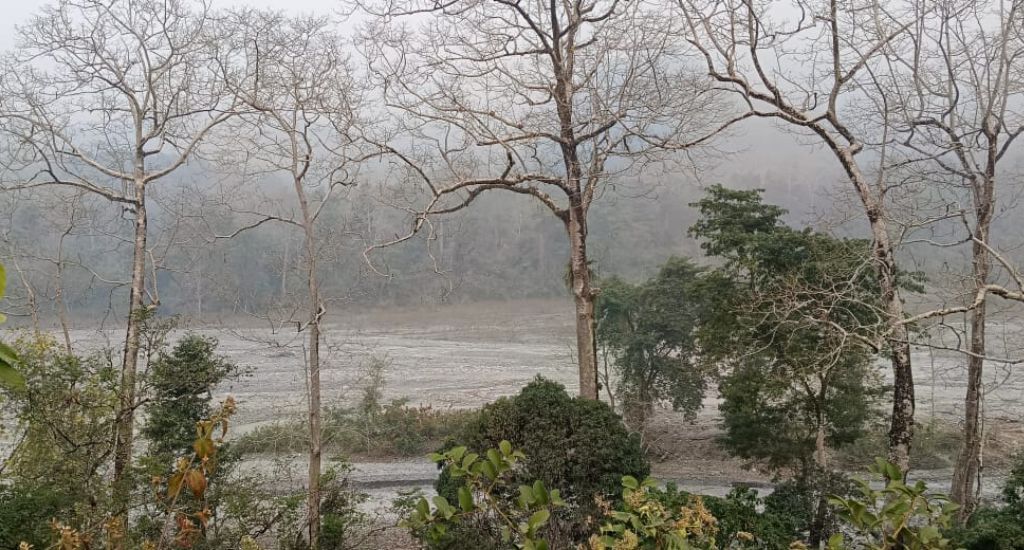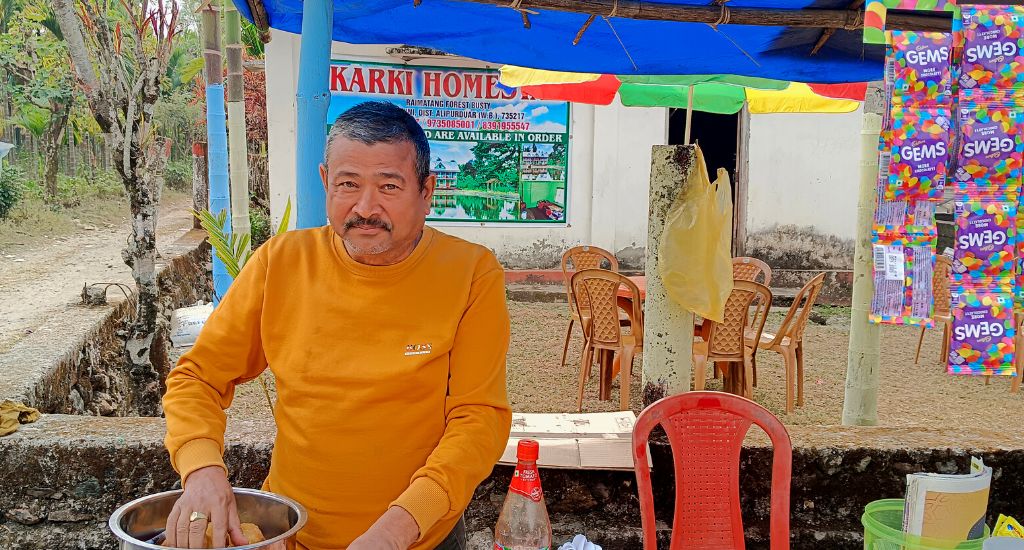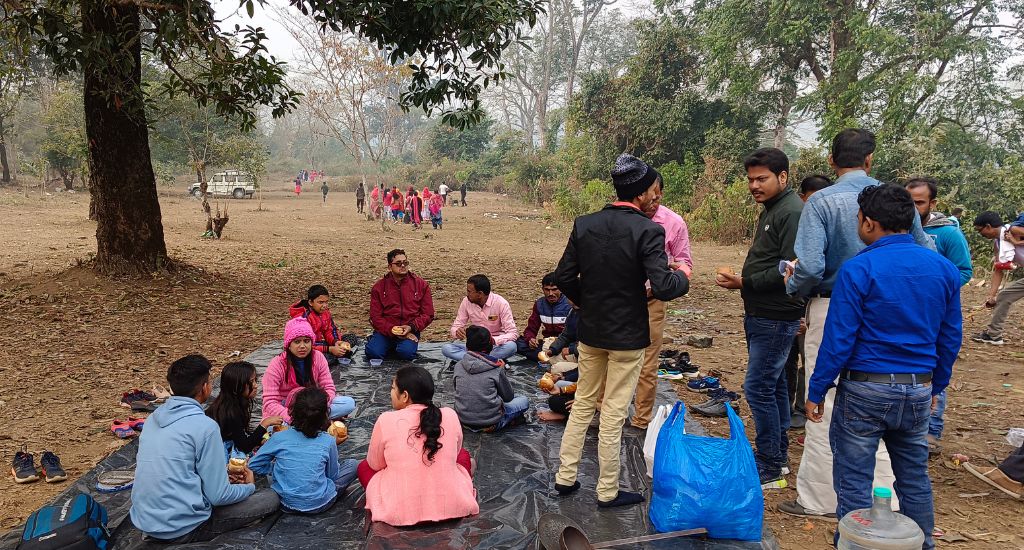
What’s a tiger reserve without a safari?
The tiny, off-grid destination in North Bengal’s Buxa tiger reserve is a paradise for nature lovers, but its tourism-dependent residents are plagued by a mountain of problems.

The tiny, off-grid destination in North Bengal’s Buxa tiger reserve is a paradise for nature lovers, but its tourism-dependent residents are plagued by a mountain of problems.
Deep in the forests of Buxa tiger reserve in north Bengal’s Dooars, a bone-jarring drive along a rough track with switchbacks – frequented more by wildlife than by cars – leads to the small village of Raimatang where time appears to have stood still.
Nature shows up in its pure, resplendent form in these foothills of the eastern Himalayas, just below Bhutan.
With tigers, elephants, giant squirrel, gaurs, clouded leopards, antelopes, around 230 species of birds and yet-to-be-counted number of butterflies – this place in Kalchini subdivision of Alipurduar district, about 700 km from Kolkata, is a nature lover’s paradise.
Over the years, the village by the eponymous rain-fed river of Raimatangkhola has become an offbeat destination for those looking to explore nature’s unpolluted beauty and soak in some peace.
Every winter, four-wheel drives and two-wheelers carrying tourists muscle through the dry riverbed to reach the village strung out along a hillock, with the snowy mountains of Bhutan offering a perfect mise-en-scène.

For the largely Nepali-speaking inhabitants of the village – a clutch of about 700 people and 100 households – the tourists brought in their wake money and hope.
Also Read | Win-win for women working in eco-tourism camp
A smattering of resorts and homestays came up fast, but an administrative order in 2016 banned jungle safaris from the village because it is within a shout from the “core zone” of the reserve forest. The ban put the kibosh on their growing business.
When Pramod Karki spent his savings to build a homestay business a few years ago, it seemed like a safe bet. Bookings by tourists hoping to catch a glimpse of wildlife in the tiger reserve were up.
But the tourist numbers began falling because of the ban on safaris from this side of the jungle. Then came the COVID-19 pandemic. The travel restrictions of almost two years shattered the livelihoods and dreams of the villagers who depended on safaris and homestays for income.
Karki, 28, said he has lost 90 per cent of his business in the past six years.
“Earlier, around 200-250 tourists used to visit the village every day and we used to take them inside the tiger reserve for a jungle safari in our vehicles. But the department banned the entry of tourists from this part of the reserve in 2016. We requested the forest department to reverse the order, but it didn’t. Tourists stopped coming and this affected our business,” said the owner of Karki homestay.

Parveen Kaswan – the divisional forest officer of Buxa tiger reserve’s western division – was unaware of any safari taking place in Raimatang. He said the village doesn’t fall in the tourist zone and government rules mandate that only 20 percent of the core zone can be opened for tourism.
“We cannot shut other areas to open the core zone in Raimatang.”
And so, Karki’s rooms are empty and the safari vehicles sit gathering dust. It’s a far cry from a time when his homestay remained booked across the year, months in advance – although the peak season to these parts is the dry winter from November to mid-January because the river swells in the monsoon and there’s no bridge across it.
Also Read | Soligas in tiger reserve win battle over forest rights
The nearest railhead is Alipurduar junction, 45 km away, and airport is Bagdogra near Siliguri, about 170 km away. For most part of the journey, the road meanders through lush tea gardens, until the last miles when one needs full 4×4 power to ford rocky riverbeds and drive on raggedy treks.
The rainy season cuts off access to the outside world. But this offbeat and off-the-grid destination still gets a few passionate tourists in the winter – mostly birders, anglers, and hikers.
We buy packaged water in the monsoon because the river and streams become muddy. The poor have little option. They are forced to use the muddy water.
This wintry trickle of tourists lets local guide Santosh Chhetri get by. The 28-year-old said the safari ban shouldn’t come in the way of tourist inflow because the place has much to offer.
“There are so many locations around the village that can be developed for visitors, if only the government pays attention.”

He said the villagers’ dependence on tourism stems from the fact that they can’t grow their traditional crops like paddy because wild elephants destroy their fields in a single raid.
The residents hope that developing Raimatang as a tourist hotspot will help them earn money as well as mitigate some inherent problems like access to drinking water, education and healthcare.
“We buy packaged water in the monsoon because the river and streams become muddy. The poor have little option. They are forced to use the muddy water. We do not have deep wells in the hills,” said Pramod’s father Sarju Karki.
Also Read | Cyclone Amphan leaves trail of destruction in Sundarbans
Children study till class 4 in the village primary school and thereafter travel a tiring and treacherous 16 km to Kalchini block. The nearest hospital is also in Kalchini, but serious cases are referred to the district hospital in Alipurduar.
The lead image at the top shows Two young Wild Tigers running in the riverside in Nepal, (Photo by Paco Como, Shutterstock)
Gurvinder Singh is a journalist based in Kolkata.